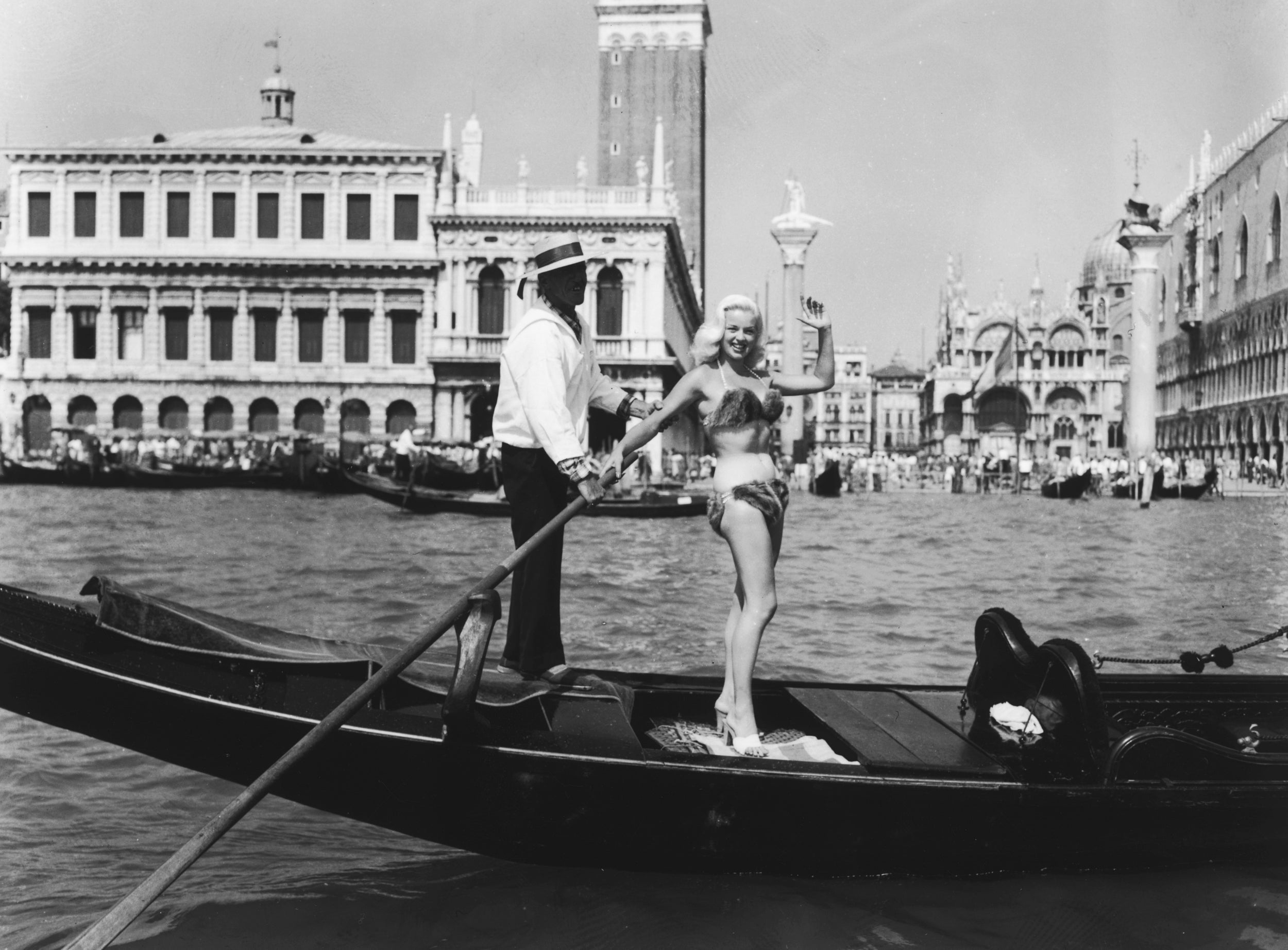Film festivals are being threatened by coronavirus – but do we really need them?
This weekend’s South by Southwest festival has been cancelled and there is talk of Cannes being shelved in May, but although a strong argument can be made that festivals are indeed anachronistic, they are more important than ever, says Geoffrey Macnab

Film and TV festivals are falling like flies. Across the world, as the coronavirus outbreak continues, event after event is being cancelled or delayed. This year’s South by Southwest festival (SXSW) in the US, due to start at the weekend in Texas, has been scrapped; the inaugural Red Sea Film Festival in Saudi Arabia has been stopped in its tracks; MIPTV, one of the major television markets, has likewise been abandoned. All over the world, from Europe to Hong Kong and Qatar, movie events are being shelved, postponed or downsized. The talk now is that the queen bee itself, Cannes (12-23 May), the biggest, most prestigious festival of them all, might not happen. Cannes has been shut down only once before (if you don’t count the interruption of the Second World War). That was in 1968 after protests led by Jean-Luc Godard and François Truffaut in support of striking workers, but was considered a one-off aberration. Nobody contemplated that it could ever happen again.
At present, attitudes within the industry towards the potential cancellation of Cannes are split. Some are saying that it would be absurd to give up on the festival now, a full two months before it is due to take place. They accuse their more wary colleagues of scaremongering and point out that by mid-May, the spread of the virus might well have been arrested anyway. They doubt that the virus would survive in the Mediterranean sunshine. Festival organisers are claiming that applications to attend are higher than last year and are insistent that, as matters stand, the event will go ahead. Unless the infection rate in the south of France shoots up, it will be business (almost) as normal, although it is far from clear that the restrictions on public gatherings will be lifted by May.
“Unless there is a major development, a huge outbreak and we find out that Nice has a thousand confirmed outbreaks, I don’t know why we would pick on Cannes,” says Dennis Davidson, founder of DDA, the PR and marketing agency which celebrates its 50th anniversary this year and which remains a major power broker at the festival.
To outsiders, the very idea of film festivals can seem anachronistic and a little bizarre. At a time when there is much talk of sustainability and of reducing the film industry’s carbon footprint, filmmakers, press and industry think nothing of blithely flying vast distances to get to Cannes, Venice, Berlin, and Sundance or to the hundreds of other towns and cities, from Mar Del Plata and Reykjavík to Goa and Shanghai, which throw huge movie bazaars.
Cannes in particular looks from the outside like an exercise in narcissism and conspicuous consumption, a cavalcade of red carpet premieres, marketing stunts, charity events, starlets on beaches and endless parties to which you haven’t been invited. If it is shelved, will it really be missed?

One of the more comic events in Cannes used to be the annual visit of the UK culture secretary to the festival. Politicians would dutifully but reluctantly attend to get behind the UK government’s “Great” campaign. The festival provided the opportunity to beat the drum for the creative industries, and for film in particular. At the same time, these politicians, overseeing austerity cuts at home, were terrified about being snapped by the paparazzi while living the high life in the south of France. They would travel to Nice on low-cost airlines, arrive in Cannes without any fanfare and would then go to extreme lengths to make sure no one took a picture of them sipping a cocktail under a palm tree or looking remotely as if they might be enjoying themselves. They would cower terrified when cornered by irascible journalists like the Evening Standard’s film critic Alexander Walker, who would ask them angry questions about National Lottery money being wasted on supporting British films which no one wanted to see. These politicians, one guesses, will be glad to have the excuse now to self-isolate at home.
Venice is the oldest of the major festivals, founded way back in 1932 to boost tourism on the Venice Lido. The photographs of early editions of the festival had very glamorous-looking figures sitting on deckchairs in the gardens of the Excelsior Hotel, watching open-air screenings of Frank Capra and George Cukor movies. It all seems very idyllic, until you realise that the world’s top filmmakers were competing for the Mussolini Cup and that the festival was used from its earliest days for propagandistic purposes by the Italian fascists.
The Berlin film festival, founded in 1951, was all about Cold War politics, an event that took place in the west as a “showcase of the free world” – as its own website puts it. It was intended to provoke feelings of envy and resentment in those of the communist east.
The Cold War and Mussolini are long behind us. We are now in an age of streamers. Audiences have instant access to films on Netflix, Amazon, Disney+ (whose UK publicity launch last week was cancelled because of coronavirus) and will soon be able to subscribe to new Hollywood-backed platforms like HBO Max and NBC Peacock. You can watch the best art-house fare on Mubi or Curzon Home Cinema. What were once considered the most esoteric movies, rarely shown in public, are often readily available online. You don’t need to go to festivals or cinematheques to see them.
Of course, Cannes is a major market as well as a festival. Distributors from around the world come here to acquire films. They watch them in back-street cinemas or in the many screening rooms in the Cannes Palais. Then they go off to haggle with the sales agents, who license rights from their booths in the Palais, as if they are medieval street hawkers selling vegetables from carts. Again, from the outside, it all seems a very expensive and old-fashioned way to do business. The coronavirus outbreak is reminding industry executives that they don’t have to travel thousands of miles to have face to face meetings when they can just as easily watch films on links and communicate with one another on WhatsApp.
Some are even seeing the mass cancellations of film events as an opportunity for the industry to rethink the way it does business.
That, though, is a profoundly misguided reaction to what, hopefully, will turn out to be only a short-lived period of disruption.
It’s easy to knock the navel-gazing self-indulgence and antiquated practices of film festivals, but these events (and Cannes in particular) are more important now than they have ever been. In a world of wall-to-wall Disney movies, when the same handful of blockbusters dominate box office charts in every market in the world, they stand as one of the few remaining bastions of diversity. They still celebrate the art of filmmaking and don’t genuflect to Hollywood.
In Cannes, encircling the Palais on the seafront side, are all the pavilions of the national film organisations. The Turkish, the Dutch, the Irish, the Serbs, the Ecuadoreans, the Indians, the Japanese, the Poles, the South Africans, the Indians, the Russians, the British, the Americans and dozens of others all nestle side by side in a United Nations of cinema. You don’t find such gatherings anywhere else.

The festival doesn’t just cater to every nationality. It is open to every style of filmmaking. At the same moment as some prestigious art-house title is screening in front of a reverent cinephile audience in the Grand Auditorium Louis Lumiere, a low-budget, low-grade exploitation picture will be showing to distributors somewhere in the market. The spirit of the festival is democratic. Movies in official selection receive the same red carpet treatment, regardless of their budget or nationality.
Cinemagoers at the International Film Festival Rotterdam in January, Berlin in February or Edinburgh in June will be far more adventurous in what they’ll pay to see than at other times of the year. When their local festival is on, they will buy tickets for movies they would never consider watching on Netflix. Sales agents, meanwhile, talk of the excitement and bidding wars among distributors who’ve seen a film with an enthusiastic festival crowd. There is a buzz around favoured titles that simply can’t be replicated when business is being done remotely, by phone and video link. Each screening is an event. Each deal is done in person. Sometimes, the passion stoked by a movie at a festival can later seem wildly misplaced. Seen on a wet autumn afternoon in an empty rep cinema months later, the same film doesn’t seem as special as it did when you had to fight the crowds to get into a screening in Cannes. Nonetheless, the best distributors are able to convey that initial excitement they themselves felt on first seeing the film to their audiences.
A strong argument can be made that festivals are indeed anachronistic. Filmmakers like Celine Sciamma (whose Portrait of a Lady on Fire is on release in the UK now) aren’t slow to draw attention to the shortcomings of the programming at Cannes, where gender equality still remains a distant pipe dream. The rules surrounding dress code at festival screenings are often absurd. You’ll see human nature at its sleaziest and most venal in Cannes. Even so, no one can say that festivals are unnecessary. They’re needed now more than ever. The longer the coronavirus lasts, the more obvious this will become. Without them as gateways, there won’t be discoveries, surprises or any of that cultural exchange festivals always facilitate. Audiences will be left with little other than the soulless, dehumanising experience of watching the same wall-to-wall superhero movies and animation at their local multiplexes.
Join our commenting forum
Join thought-provoking conversations, follow other Independent readers and see their replies
0Comments